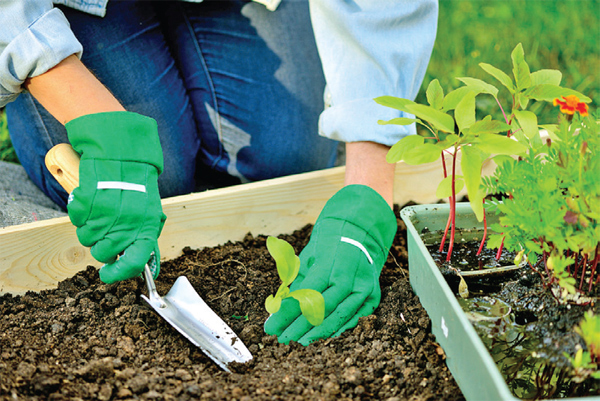How To Grow Organic Cucumbers Without Pesticides Growing organic cucumbers without pesticides requires careful planning, patience, and a commitment to natural gardening practices. Cucumbers thrive in warm conditions with well-drained soil, making them a rewarding choice for home gardeners who want to cultivate fresh, chemical-free produce. Do organic cucumbers have pesticides How to grow cucumber organically What is the best feed for fertilize. By following organic methods, growers can ensure a healthy, bountiful harvest while preserving the ecosystem and avoiding synthetic chemicals.
The foundation of successful organic cucumber cultivation starts with soil preparation. Cucumbers prefer soil rich in organic matter, with a pH level between 6.0 and 7.0. Before planting, it is essential to enrich the soil with compost, well-rotted manure, or other natural amendments to enhance fertility. Organic matter not only provides essential nutrients but also improves soil structure and moisture retention, creating an ideal environment for cucumber plants to establish strong roots.
Crop rotation is another vital component of organic cucumber cultivation. Avoiding consecutive plantings of cucumbers or other cucurbit family members in the same location helps prevent the buildup of soil-borne diseases and pests. Instead, rotating cucumbers with nitrogen-fixing plants such as legumes can improve soil health and minimize disease risks. Regularly incorporating cover crops like clover or rye during the off-season further enriches the soil and suppresses weeds, reducing the need for chemical interventions.
Selecting the right cucumber variety plays a significant role in organic gardening success. Disease-resistant cucumber cultivars can help reduce susceptibility to common issues such as powdery mildew, downy mildew, and cucumber beetles. Heirloom and hybrid varieties with natural resistance to diseases allow gardeners to maintain healthy plants without resorting to synthetic pesticides or fungicides. Opting for seeds labeled as organic ensures they have not been treated with chemical coatings or genetically modified organisms (GMOs). How To Grow Organic Cucumbers Without Pesticides
Proper spacing and trellising enhance air circulation and reduce the risk of fungal infections. Cucumbers thrive when planted in rows or mounds with adequate spacing between plants, typically around 12 to 24 inches apart. Using trellises or vertical supports not only conserves garden space but also minimizes soil contact, keeping fruits clean and less prone to rot. Trellising also deters crawling pests and makes harvesting easier while improving sun exposure for uniform growth.
Watering cucumbers correctly is crucial for healthy development. These plants require consistent moisture, especially during flowering and fruiting stages. However, overwatering or using overhead irrigation can lead to fungal diseases like powdery mildew. Drip irrigation or soaker hoses deliver water directly to the root zone, reducing humidity around foliage and preventing disease outbreaks. Mulching with straw, shredded leaves, or grass clippings helps retain soil moisture, suppress weeds, and regulate soil temperature, further supporting organic cucumber growth.
Controlling pests organically involves a combination of preventive strategies and natural deterrents. Beneficial insects such as ladybugs, lacewings, and parasitic wasps play a crucial role in managing common cucumber pests like aphids and whiteflies. Planting companion plants such as marigolds, nasturtiums, and basil attracts these beneficial insects while repelling harmful pests. Introducing predatory nematodes to the soil can help control root-knot nematodes and other soil-borne pests without chemical treatments.
Handpicking pests like cucumber beetles and squash bugs is an effective organic control method. Checking plants regularly and removing pests manually helps prevent infestations from escalating. Row covers provide a physical barrier against insects while allowing light and air to reach plants. Floating row covers are particularly useful in the early stages of cucumber growth when young plants are most vulnerable to pests.
Homemade organic sprays and natural repellents offer additional protection against pests without harming beneficial organisms. A mixture of neem oil and water acts as a natural insecticide and fungicide, helping to control aphids, spider mites, and powdery mildew. Garlic and chili pepper sprays create an unpleasant environment for pests while remaining safe for plants. Applying these natural solutions in the early morning or late evening minimizes the risk of leaf burn and maximizes effectiveness.
Encouraging biodiversity within the garden enhances resilience against pests and diseases. Interplanting cucumbers with a diverse range of flowers, herbs, and vegetables fosters a balanced ecosystem that naturally regulates pest populations. Companion planting strategies, such as growing radishes alongside cucumbers to deter cucumber beetles, contribute to sustainable organic gardening practices. Maintaining healthy soil teeming with earthworms and microorganisms further supports plant vigor and resistance to environmental stress. How To Grow Organic Cucumbers Without Pesticides
Harvesting cucumbers at the right time ensures optimal flavor and quality. Most varieties are ready for harvest within 50 to 70 days after planting. Picking cucumbers frequently encourages continuous production, preventing fruits from becoming overripe and inhibiting further growth. Using clean, sharp shears to cut cucumbers from the vine reduces damage to the plant and minimizes disease entry points. Proper post-harvest handling, such as washing and storing cucumbers in a cool environment, preserves their freshness and extends shelf life.
Organic cucumber cultivation is not only rewarding but also contributes to environmental sustainability and personal health. By avoiding synthetic pesticides and fertilizers, gardeners can produce safe, nutritious cucumbers while supporting pollinators and soil health. The integration of natural pest control methods, strategic planting techniques, and soil enrichment practices ensures a thriving organic garden with abundant harvests season after season. Commitment to these principles fosters a deeper connection with nature and promotes a holistic approach to gardening that benefits both people and the planet.



















0 komentar:
Posting Komentar